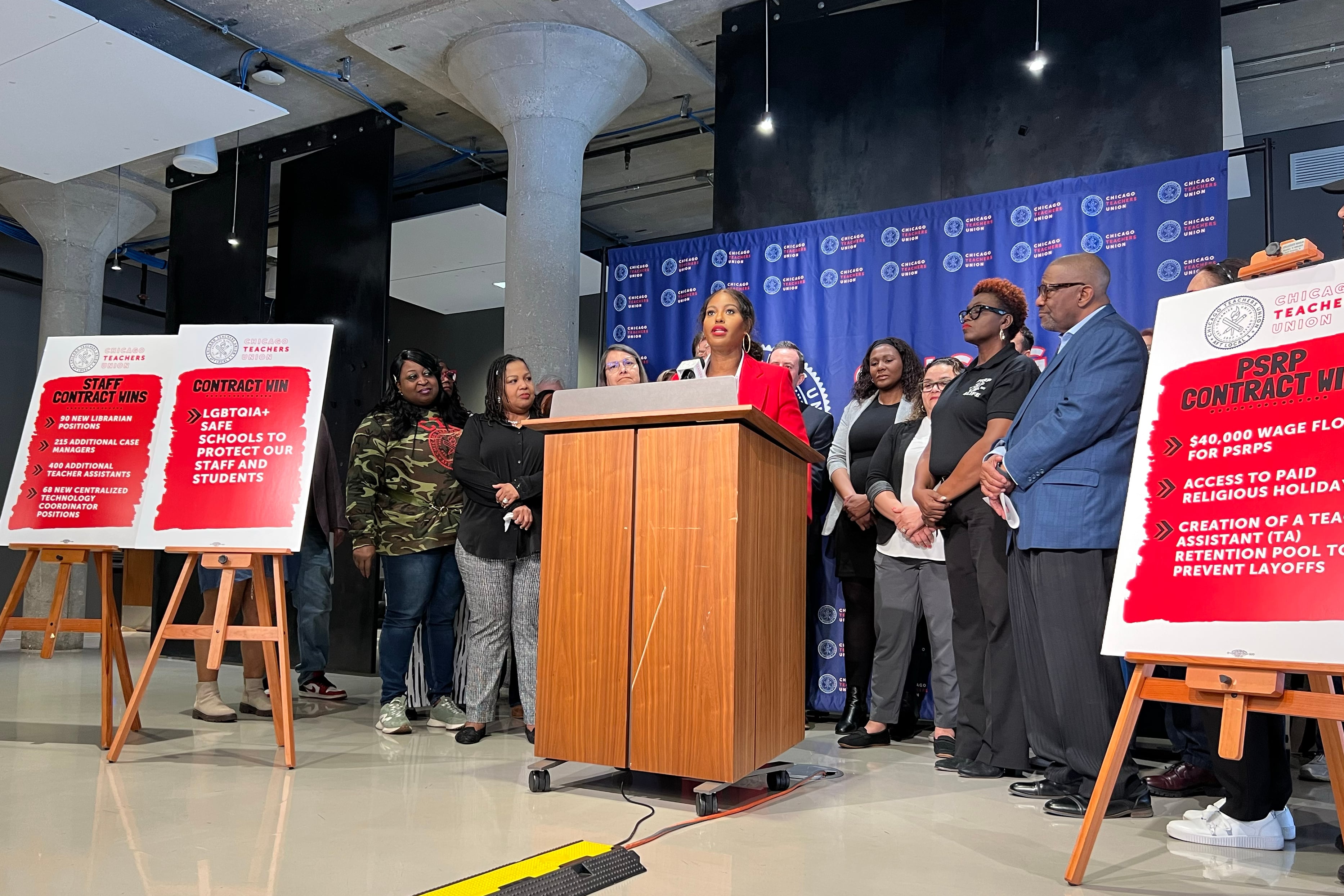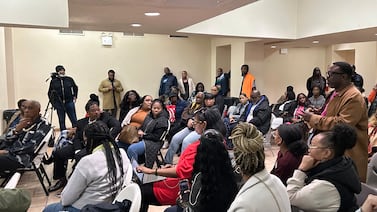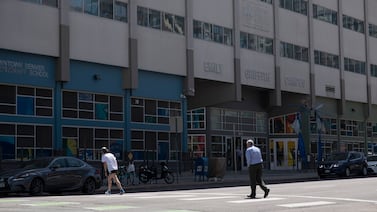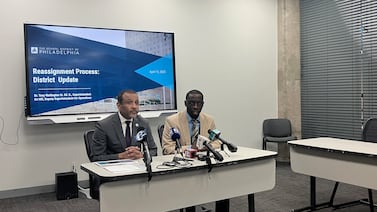Sign up for Chalkbeat Chicago’s free daily newsletter to keep up with the latest education news.
The Chicago Teachers Union announced Monday 97% of teachers and support staff at Chicago Public Schools who voted last week approved the tentative deal it reached after a year of sometimes heated bargaining with the district.
The union said 85% of all union members voted last Thursday and Friday across 500 schools and some central locations for citywide employees. The Chicago Board of Education must still vote to approve the deal. The board must also amend its budget to pay for the first year of the four-year contract, which will include retroactive pay reaching back to last July.
During a press conference Monday announcing the results, CTU President Stacy Davis Gates said the approval numbers were a result of the union’s democratic process, including consulting its roughly 30,000 members on proposals for the contract.
“That should be an expectation: That people are engaged, that people have an understanding, that they get their questions answered, they see the progression of the work and then they ratify in those numbers,” Davis Gates told reporters.
To members who voted no, Davis Gates said the union will continue to “build” with them and asked those members to give the union “a few more years” to meet their demands. Davis Gates is up for re-election in May and faces at least one slate of challengers.
The approval from CTU’s membership caps a process that heightened tensions between the district, the union, and Mayor Brandon Johnson, a former middle school teacher and CTU organizer. It fueled deep disagreement over how to pay for the contract and other costs, leading to the resignation of Johnson’s entire first appointed school board and the firing of CPS CEO Pedro Martinez, who will stay through the end of the school year.
In recent weeks, tensions grew to a boiling point, raising the question of whether the union would go on strike, as it did in 2019 and 2012. That didn’t come to pass. The union and the district agreed on a tentative deal that was far more modest than the original 700-plus proposals the union had pitched at the start of bargaining.
The new contract will include 4-5% raises annually over the life of the four-year contract, as well as additional pay for more veteran teachers. It will also require hiring hundreds more staffers, including more teacher assistants, and includes some new class size limits.
One of the thorniest issues resolved in the final days of bargaining was additional preparation time for elementary school teachers. Those educators will receive an additional 10 minutes of prep time each day, as well as an additional three teacher-directed professional development days that were previously controlled by principals. District leaders said this will be achieved differently by schools, such as by increasing recess time to the state-mandated requirement of 30 minutes so that teachers can prepare.
While CPS has said it can afford the first year of the contract, it’s unclear how it will pay for the rest of the deal, which in total is projected to cost $1.5 billion. Martinez has said the district’s revenues could be enough to cover the costs, but it struggles every year with a structural deficit.
Potentially choppy financial waters are ahead for the district, which is projected to face at least a $500 million deficit next fiscal year. Additionally, there is a looming threat of federal funding cuts under the Trump administration. Union, district, and city officials have all said they plan to advocate for more funding from the state, though so far it’s unclear if those demands will be met. Mayor Johnson said the city will sue the Trump administration if it withholds federal funding because of the district’s policies on diversity, equity, and inclusion.
Asked if she is worried about furloughs and layoffs in the upcoming school year, Davis Gates said no. She said the union has organized and fought before against painful cuts and layoffs, including during the 2013 school closures. Key players in those fights now sit in the highest places of power in Chicago’s government, she noted.
“I’m not worried about it because Jitu Brown is on the school board and he did that work already. I’m not worried about it because Brandon Johnson is on the fifth floor and he did that work already. I’m not worried about it because Jeanette Taylor is in the City Council and she’s done that work already,” she said. “See, we have set ourselves up for this moment.”
Reema Amin is a reporter covering Chicago Public Schools. Contact Reema at ramin@chalkbeat.org.







